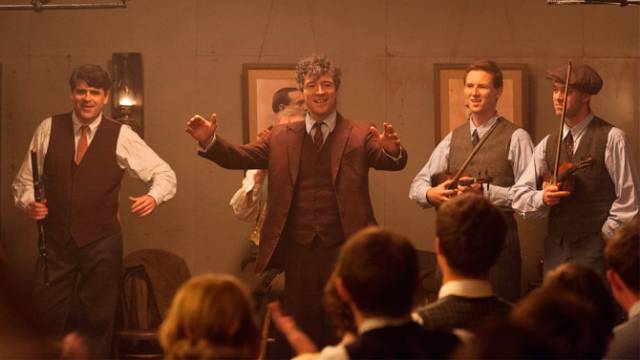
 Over the course of his decades long career, Ken Loach, especially when collaborating with writer Paul Laverty, has shown a singular talent for taking political ideas and vividly illustrating them through films, while staying true to the complexity of the issues and still making films that are enjoyable and emotionally resonant. My personal favorite is The Wind That Shakes the Barley, 2006’s Palme D’Or winner which showed both the idealism and the horror of the Irish revolution and subsequent civil war; Loach and Laverty's Jimmy’s Hall, involves all different characters but is in many ways a spiritual sequel.
Over the course of his decades long career, Ken Loach, especially when collaborating with writer Paul Laverty, has shown a singular talent for taking political ideas and vividly illustrating them through films, while staying true to the complexity of the issues and still making films that are enjoyable and emotionally resonant. My personal favorite is The Wind That Shakes the Barley, 2006’s Palme D’Or winner which showed both the idealism and the horror of the Irish revolution and subsequent civil war; Loach and Laverty's Jimmy’s Hall, involves all different characters but is in many ways a spiritual sequel.
Jimmy’s Hall takes up in 1932, about a decade after the revolution. Jimmy Gralton (Barry Ward) returns to his hometown after a ten-year exile to see the flag of a new nation flying, but an unjust economic system still persisting. As Barley showed, the Irish revolution was fought not only for freedom from Britain, but also for freedom from an exploitative landowning class; after the British offered a treaty offering independence for most of Ireland but maintaining the landed estates, anti-treaty factions who wanted further leftist land reform fought pro-treaty forces and eventually lost, scars that have scarcely healed by Jimmy’s return in 1932. Jimmy is quickly reabsorbed into the life of the town and his allies tell him that little has changed on the local level; any progress for the rights of average citizens is opposed by “the masters and the pastors.” This is a time of anti-communist hysteria, with the arch-conservative Catholic Church leading the charge against anything that seems even faintly progressive, including any meeting place or education occurring outside their auspices.
Jimmy’s transgression ten years prior was running a community-built dance hall that doubled as a cultural center, where people could meet for fun in the evening and perhaps take lessons in poetry or painting during the day. He is immediately pressured to reopen the hall, not only by his old friends but also by a new generation of teens stifled by the lack of opportunity. Jimmy obliges them and reopens the hall, also reopening the conflict between the mild self-empowerment offered by the hall and the reactionary forces that want to maintain the nearly feudal status quo.
Jimmy’s Hall shows politics on the most intimate, personal level. Most of the townspeople see no conflict with going to the dancehall on Saturday night and then Mass the next morning, but the anti-communist sentiment is so strong they’re forced to choose. Jimmy is torn between fervently held ideals and his desire to live quietly in his hometown. He doesn’t go looking for fights, but they find him anyway. Visually, this is a strikingly beautiful film. There’s a romantic pastoral quality to the cinematography, achieved using 35mm film and prodigious amounts of natural light. The performances are spot-on, led by Ward as a man of passion and principle and featuring a varied and authentic supporting cast. Jimmy’s Hall is rumored to be Loach’s last film, and if it is, this rousing depiction of small-scale politics will be a fitting coda to a career spent advocating for the dignity and rights of ordinary people.